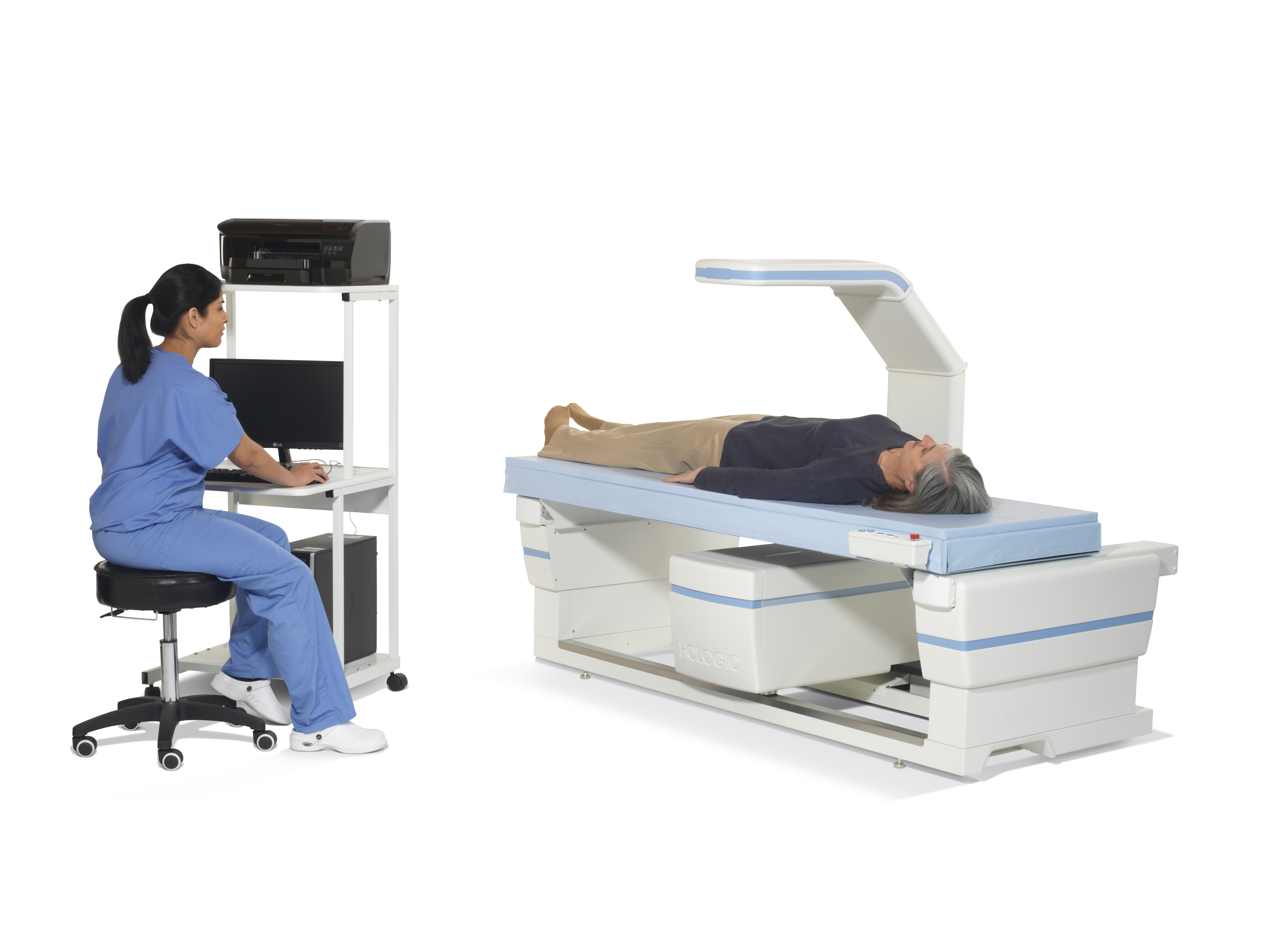Providing the latest in Bone Health and Body Composition Assessments available in Bedford, Concord, Derry, Londonderry, Raymond, and Windham locations.
The imaging technology of our Horizon DEXA system provides superb image quality with advanced diagnostic tools to support early detection and treatment of osteoporosis. It can also provide a full body, Advanced Body Composition assessment. (Dual & Single Energy Vertebral and Femur Fracture Assessments are also available)

A DEXA scan can help a doctor who is examining a patient for osteoporosis to assess their risk for having a bone fracture within the next few years.
What is Bone Densitometry?
A bone densitometry scan (also called a DEXA scan) is a special type of X-ray test used to measure the calcium content of the bone. The bone density measurement is taken using a DEXA system (Dual-Energy X-Ray Absorpitometry). A scan can help diagnose osteoporosis, a condition in which the bones become porous and fragile, and can fracture easily. It is also used to assess the risk of developing a bone fracture as well as tracing the effects of treatment.
What to Expect
The exam is quick and painless. You will be asked to lie on a padded table where the imaging device is positioned above you, the detector will then pass over you generating images. Your results will show if you have normal bone density, low bone density (osteopenia) or osteoporosis. Your doctor will review the results with you along with any follow-up recommendations.
How to Prepare
- Avoid taking calcium supplements 48 hours prior to your scheduled exam (eg. multivitamins, tums, rolaids)
- Wear loose, comfortable clothing, without zippers, belts or metal buttons. You may be asked to change into a gown if the technologist believes clothing will affect your images.
**Please note if you use medical devices, such as pacemakers, neurostimulators, cardiac defibrillators, continuous glucose monitors, and other bio-wearable sensors you may not be able to have your exam. Hologic has determined that some component of the bone density machines uses an electromagnetic component for moving the machine causing an issue with the above devices and patients cannot be scanned until a solution is in place. This is only temporary.
Who Should have a Bone Density Scan?
- Women age 65 / men age 70 or older
- Women or men ages 50-69 with clinical risk factors
- Women or men who have a fracture after age 50
- Women or men with a condition such as; rheumatoid arthritis or taking a medication associated with low bone mass or bone loss
Risk Factors for Osteoporosis:
- Family history
- Small bone stature
- Early menopause or ovaries removed before age 45
- Prolonged immobility
- Lifestyle factors: smoking, excessive alcohol or caffeine intake
- Long-term use of corticosteroid medication
- Certain diseases (eg. Hyperthyroidism/Hyperparathyroidism)
